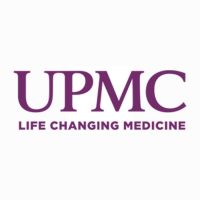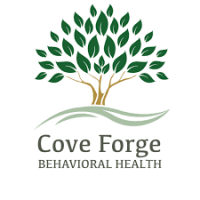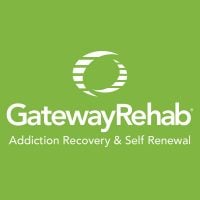
UPMC - Magee Women's Hospital
Drug Rehab Center in Pittsburgh, Pennsylvania
- Mental Health
UPMC - Magee Women's Hospital in Pittsburgh offers comprehensive women's healthcare services, including addiction and substance abuse treatment, with a focus on physical, psychological, and social support.
About This Pittsburgh, PA Facility
UPMC - Magee Women's Hospital, located in Pittsburgh, Pennsylvania, is a renowned healthcare facility specializing in women's health and addiction treatment. With a mission to provide outstanding patient care and shape the future of healthcare through innovation, research, and education, this hospital stands out for its commitment to excellence.
- Specialized in treating mental health and addiction issues specific to women
- Offers comprehensive inpatient and outpatient programs tailored to individual needs
- Provides a holistic approach, addressing physical, psychological, and social aspects of recovery
UPMC - Magee Women's Hospital is fully accredited and licensed by reputable organizations such as JCAHO, SAMHSA, and the state of Pennsylvania, ensuring adherence to the highest standards of care. Their experienced staff of medical professionals not only offers clinical treatment but also provides essential support services, education, and prevention programs.
This facility treats a wide range of addictions and substance abuse issues, employing evidence-based therapies and treatment modalities. Their services encompass various levels of care, from intensive inpatient programs to outpatient counseling and support groups, ensuring a continuum of care tailored to each individual's needs.
Genders
Ages
Modality
Additional
Conditions and Issues Treated
Levels of Care Offered
This center offers a variety of custom treatment tailored to individual recovery. Currently available are Outpatient, with additional therapies available as listed below.
An outpatient treatment program is set up to help with alcohol or drug addiction, or a co-occurring disorder. The patient must attend the Pennsylvania facility for their therapy and other programs but are able to return home each night. The frequency of mandatory attendance decreases after much of UPMC - Magee Women's Hospital‘s program is complete.
UPMC - Magee Women's Hospital‘s Therapies & Programs
Treatment programs include individual therapy for the greatest chances of success. Customized individual therapy is counseling involving you and your UPMC - Magee Women's Hospital counselor. Individual therapy leads to greater peace and understanding about your triggers for addiction.
Spousal relationships bear the brunt of alcohol and drug dependence. It becomes critical to submit the relationship to couples therapy to prevent straining it further. Some facilities like UPMC - Magee Women's Hospital in Pittsburgh, PA offer couples therapy options to manage intimate partnerships amid the recovery process. Other couples-focused treatment plans can provide the patient and their partner tools to get things back to normal.
When family members are more proactive and involved in the treatment procedure, it encourages the patient to advance his or her progress. Moreover, it shouldn’t be ignored that genetics play a role when it comes to addiction, so it’s better to approach the problem as a unit. Also, with proper education, family members can help an individual avoid addiction triggers and guide him or her in making lifestyle changes necessary for his or her sobriety.
Cognitive Behavioral Therapy (CBT) is a type of psychotherapy that focuses on the underlying thoughts and behaviors that caused the problem of addiction in the first place and may cause a relapse. Negative feelings are common in substance abuse disorders, and if not recognized, they can cause co-occurring disorders.
CBT involves strategies that help to change the thinking and behavioral pattern by cognitive restructuring. In simple terms, it helps to remove negative thoughts and provides long-term benefits. Also, CBT promotes self-awareness, self-control, and healthy ways to respond to negative thoughts. It can be administered as a mono-therapy as well as a part of combination therapy.
Addiction commonly results in varying levels of malnutrition, vitamin and mineral deficiencies. This can be reflected in weight loss, hair loss or hair changes, skin irregularities and damage to multiple internal body functions. While in active addiction meals can be skipped or replaced by drugs or alcohol. Eating correctly to replace lost vitamins and minerals while balancing your diet can build confidence while restoring your health from the inside out.
Nicotine Replacement Therapy (NRT) helps smokers get nicotine into their system without resorting to smoking. It’s a way to help people quit smoking without going cold turkey and experience aggressive withdrawal symptoms. The products (in the form of gums, sprays, patches, inhales, or lozenges) used in NRT provide the body with nicotine, excluding the toxic substances found in tobacco.
NRT treatment at UPMC - Magee Women's Hospital in Pittsburgh, Pennsylvania lowers down nicotine cravings, so the patient does not go through physical weakness while dealing with the emotional and mental stress of quitting smoking. Coupling NRT with counseling and other means of support gives long-term smokers a better chance of removing their unhealthy habit.Patient Experience
Experiential Therapy at UPMC - Magee Women's Hospital
Experential therapy is a unique type of therapy that deals with the subconscious mind. This treatment offered by UPMC - Magee Women's Hospital in Pittsburgh, PA encourages individuals to work out their issues with their inner self. Some of the most common examples of experiential therapy are equine therapy, music therapy, adventure therapy, and role playing.
Payment Options Accepted
For specific insurance or payment methods please contact us.
Is your insurance accepted?
Ask an expert, call (888) 674-0062
UPMC Associated Centers
Discover treatment facilities under the same provider.
- Western Psychiatric Institute and Clinic of UPMC in Pittsburgh, PA
- UPMC - McKeesport in Mc Keesport, PA
- UPMC - 5th Avenue in Pittsburgh, PA
- UPMC - North Bellefield Avenue in Pittsburgh, PA
- UPMC - Pittsburgh in Pittsburgh, PA
Learn More About UPMC Centers
Additional Details
Specifics, location, and helpful extra information.
Pittsburgh, Pennsylvania 15213 Phone Number(412) 641-1238 Meta DetailsUpdated April 15, 2024
Staff Verified
Patient Reviews
There are no reviews yet. Be the first one to write one.
Pittsburgh, Pennsylvania Addiction Information
Pennsylvania ranks 14th in the nation for drug-related deaths. More than 10% of all deaths in Pennsylvania have been related to drugs and alcohol. 30% of Pennsylvania youth reportedly drink alcohol monthly, with more than 20,000 teenagers having an alcohol problem. The rate of opioid misuse in Pennsylvania is double the national average.
Pittsburgh, Pennsylvania, has been hit hard by the opioid epidemic. About 24,000 people in Pittsburgh struggle with drug addiction. In the city, there were 9,813 overdose deaths in 2016. Alcohol is a factor in more than 38% of all traffic fatalities in Pittsburgh. There are plenty of drug treatment centers in the area to help you get your life back on track.
Treatment in Nearby Cities
- Phoenixville, PA (235.5 mi.)
- Fort Washington, PA (252.4 mi.)
- Warminster, PA (256.8 mi.)
- Kempton, PA (216.4 mi.)
- Houston, PA (18.7 mi.)
Centers near UPMC - Magee Women's Hospital



The facility name, logo and brand are the property and registered trademarks of UPMC - Magee Women's Hospital, and are being used for identification and informational purposes only. Use of these names, logos and brands shall not imply endorsement. RehabNow.org is not affiliated with or sponsored by UPMC - Magee Women's Hospital.




